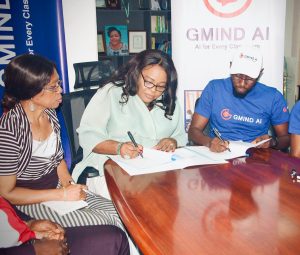Education
Ubongo Celebrates 10 Years of Transforming Education in Africa

Ubongo, Africa’s leading children’s edutainment and media company, is excited to announce its 10-year anniversary, marking a decade of transforming education and empowering millions of children across the continent. With an impressive portfolio of educational programs including Akili and Me, Ubongo Kids, and the recent addition of the captivating new show Nuzo and Namia, Ubongo continues to set the standard in innovative learning experiences for kids.
Since its founding in July of 2013 in Dar es Salaam, Tanzania, Ubongo has been dedicated to providing fun, localized, and multi-platform educational content that helps children foster a lifelong love of learning. Through accessible technologies like TV, radio, and mobile phones, Ubongo has reached over 32 million families across Africa, making a significant impact on the continent’s education landscape. Independent research studies examining Ubongo’s programs have consistently revealed their profound impact, enhancing school readiness, improving learning outcomes, and fostering positive social and behavioral change among both children and their caregivers.
Over the past 10 years, Ubongo has grown from a small Tanzanian grassroots startup to a Pan-African non-profit organization and the market leader in African edutainment. Ubongo’s innovative and engaging edutainment programs empower kids with the knowledge and critical skills they need to change their lives and their communities for the better.
“We are thrilled to celebrate this incredible milestone of 10 years,” said Mwasi Wilmore, CEO of Ubongo. “It is a testament to the hard work, dedication, and passion of our team, partners, and supporters who have believed in our mission and contributed to our success. Together, we have made a significant impact on education in Africa, and we are committed to continuing our journey of transforming learning for generations to come.”
In commemoration of this significant milestone, Ubongo has arranged a special 10-year anniversary event in Dar es Salaam to celebrate the accomplishments and milestones achieved throughout the years. The event will feature inspiring speeches and captivating presentations showcasing the journey and impact of Ubongo’s edutainment programs.
“We invite all our partners, supporters, and stakeholders to join us in celebrating this significant milestone,” added Mwasi Wilmore. “Together, let us reflect on our journey, express our gratitude, and renew our commitment to providing quality education and transformative learning experiences for children in Africa.”
“As we look ahead to the next decade, we remain steadfast in our mission to reach even more children, leveraging the power of edutainment to unlock their potential and shape a brighter future for Africa,” added Mwasi Wilmore.
Education
African Leaders United in Transforming Financing for Foundational Learning
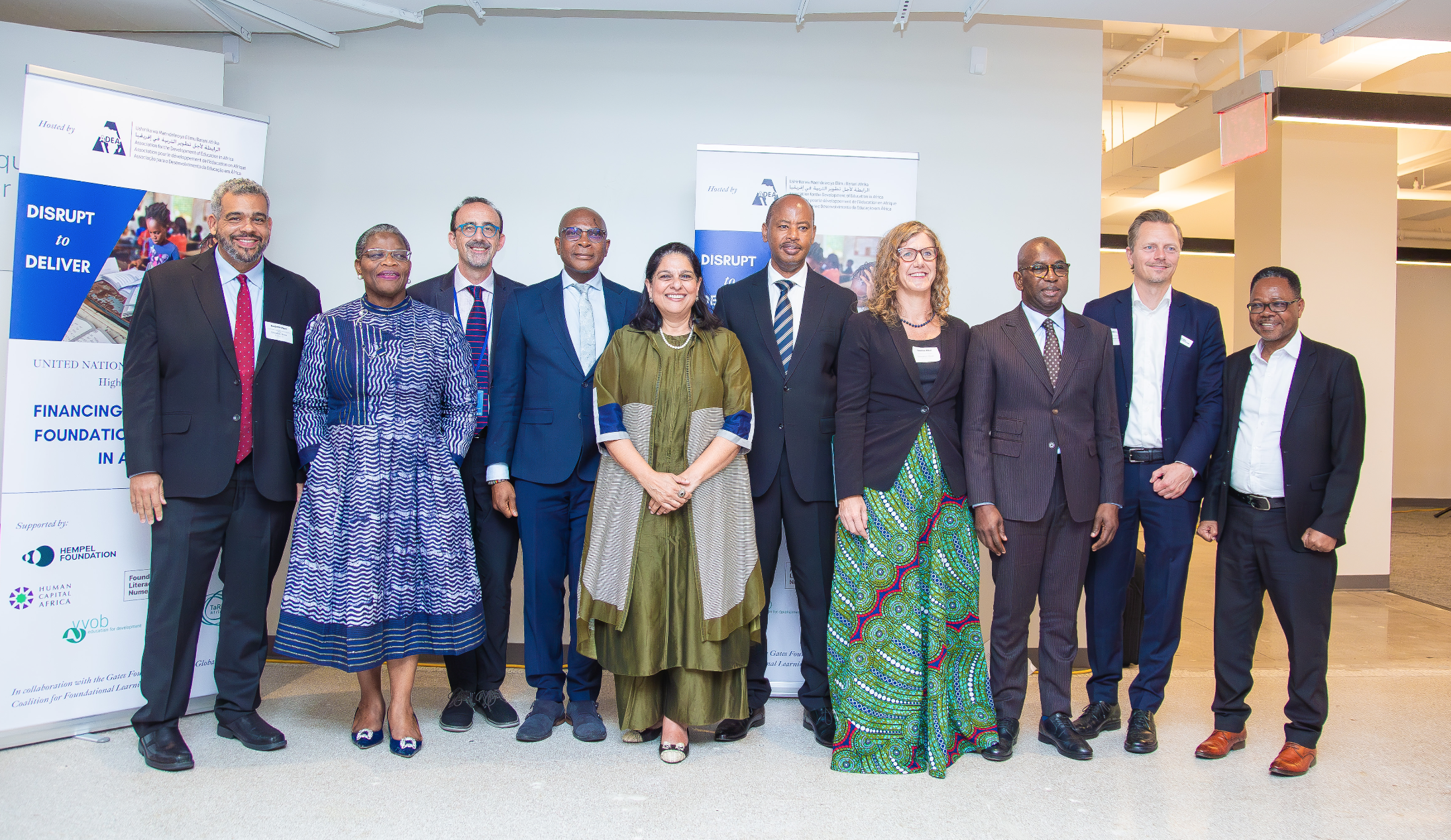
In a landmark response to global education aid cuts and mounting debt burdens, African and global education leaders yesterday announced a bold, African-led shift in financing for foundational learning. The announcement came during the UN General Assembly (UNGA 80) side event, “Disrupt to Deliver: Financing the Future of Foundational Learning,” where African ministers and global education leaders issued a unified call for smart, sustainable, and targeted investments to tackle a severe learning crisis.
A Solvable Learning Crisis in the Face of ODA and Fiscal Disruption:
- African leaders are calling for a focused “Mission” to take evidence-based and cost-effective foundational learning interventions to scale, highlighting that significant gains are possible within just two to four years, with countries like India serving as a clear example of success.
- The urgency of this mission is heightened by sharp aid reductions, as USAID programme suspensions have impacted 153 education initiatives in sub-Saharan Africa. Specific countries facing significant cuts include Ethiopia ($33 million), Rwanda ($35 million), and the Democratic Republic of Congo ($51 million).
- This push for political will and shrewd financial determination is crucial to tackle the widespread learning crisis, where a staggering 89% of African children are unable to read a simple text or perform basic maths by the age of 10.
A New Narrative: African Leadership and Ownership
Rather than waiting for external aid to recover, African education leaders demonstrated how they are leveraging this moment of disruption as an opportunity to lead. This transition from aid dependency to self-reliance is being driven by a coordinated continental effort through initiatives such as the African Union’s End Learning Poverty for All in Africa (ELPAf) Campaign and the new Continental Education Strategy for Africa (CESA).
Sophia Ashipala, Head of Education Division at the African Union Commission, emphasised the continental approach: “Together, the African Union and UNICEF have produced a report on education spending in Africa that translates into actionable continental initiatives. The AU is mobilising partners to ensure every African child can read with understanding by the age of ten, because this is not just about literacy, but about empowering Africa’s social and economic development.”
Moustapha Mamba Guirassy, Minister of National Education of Senegal, spoke passionately about sovereignty in education: “We have a big opportunity; there is a new economic order. The collapse of USAID presented us with an opportunity. We are now in the process of figuring out our financing and seeing our resilience throughout this problem. We see this as our responsibility.”
As Albert Nsengiyumva, Executive Secretary of the Association for the Development of Education in Africa (ADEA), emphasized, “the time for inefficient spending has ended. Whether from domestic budgets, African philanthropy, or international financing, every dollar must demonstrably improve children’s ability to read and calculate.”
Evidence-Based Efficiency and Measurable Results
The emerging educational approach across Africa centres on a fundamental shift towards evidence-based efficiency and measurable learning outcomes. Instead of simply increasing expenditure, this strategy prioritises high-return interventions that deliver tangible results. Recent cost analysis reveals remarkable potential: a modest allocation of as little as $6 per student—directed towards skills-based teacher training and quality learning materials—can significantly enhance learning outcomes. The returns prove substantial, with high-quality reading programs demonstrating an impressive 30:1 return on investment, whilst research indicates that a one standard deviation increase in literacy and numeracy scores can generate 2% annual growth in GDP per capita.
Caroline Eliot, Country Programmes Manager at VVOB, provided specific evidence from Zambia: “When we say children are falling behind, consider that in Zambia, only one in ten children finish primary school with literacy skills. Through Catch-up/TaRL (Teaching at the Right Level), we reach one million children every year. We are seeing a 20-25% improvement in literacy and numeracy in grades three to five.”
This evidence-driven approach finds strong advocacy from leading voices in African education. Dr. Obiageli Ezeikwesi, CEO of Human Capital Africa, articulates the paradigm shift succinctly: “Governments and donors must measure impact by learning results, not dollars spent or percentages allocated. Africa needs smart, efficient, and strategic spending, not just increased spending.”
Innovative Financing Models in Practice
African governments are already pioneering new models to finance this transformation:
- Domestic budget optimization: Countries including Sierra Leone, Kenya, and Rwanda are modernizing their financial systems by digitising tax collection and reforming procurement to increase efficiency in education spending.
- Strategic philanthropy: African leaders are looking to successful models from other Global South nations, such as India, where domestic philanthropy has played a catalytic role in education system reform. They are urging African philanthropists to move beyond traditional charitable giving to make strategic, high-return, evidence-based investments that transform entire systems.
- Catalytic international support: The communique calls on international partners and multilaterals to transition from traditional aid to catalytic investments that leverage domestic budgets. This means funding evidence-based interventions that boost, rather than replace, domestic spending and embedding African technical talent directly into government systems.
Dr. Pia Rebello Britto, Global Director of Education and Adolescent Development at UNICEF, outlined the new financing imperative: “We need to look at the fact that 90% of the budget for most African governments is for recurring costs. We need to see how catalytic donors can help to test and scale within this area. We have to make education finance the norm. There will be failures, but how do we take risks with governments as their partners?”
A Coordinated Path Forward
The event concluded with a clear call to action and a roadmap for the future. African governments and leaders at the highest levels were urged to dedicate domestic budgets to proven interventions, be ‘mission-minded’ to get Africa’s children learning and early for a 5-10 year runway for better jobs and life outcomes, and support the establishment of a G20 Foundational Learning Leaders Network.
For their part, international partners and multilaterals like the Global Partnership for Education and the World Bank were called upon to align their priorities with Africa’s, making foundational learning a core focus and embedding learning outcome measurements into all grants and results frameworks.
Anders Holm, Executive Director of Hempel Foundation, reflected on the changing philanthropic landscape: “What has changed for us is that previously we had scaling partners like USAID. What we really need to do now is to think that the only organisations still around that have scaled are governments. That means we have to listen to their problems, understand their needs, have a much greater focus on costs, and then we have to focus on efficiency.” The call was to work with government differently and better than what went before.
The momentum will continue at the ADEA 2025 Triennale in Accra, Ghana (29-31 October 2025), where ministers will assess progress since the Africa Foundational Learning Exchange (FLEX 2024) commitment to end learning poverty within a decade. But as it was said, kids need this to happen earlier and faster. Building on declarations from last year’s Continental Conference on Education in Mauritania, they will define implementation frameworks for scaling foundational learning across the continent. The overall message is clear: Africa is “seizing this moment to lead on the financing agenda to get its children learning and for the continent to be future ready and “setting the terms for future development cooperation.” Africa’s children are its brain trust for a more prosperous future.
Education
GMind AI and TRCN Partner to Revolutionize Nigerian Education with AI-Powered Teaching Platform
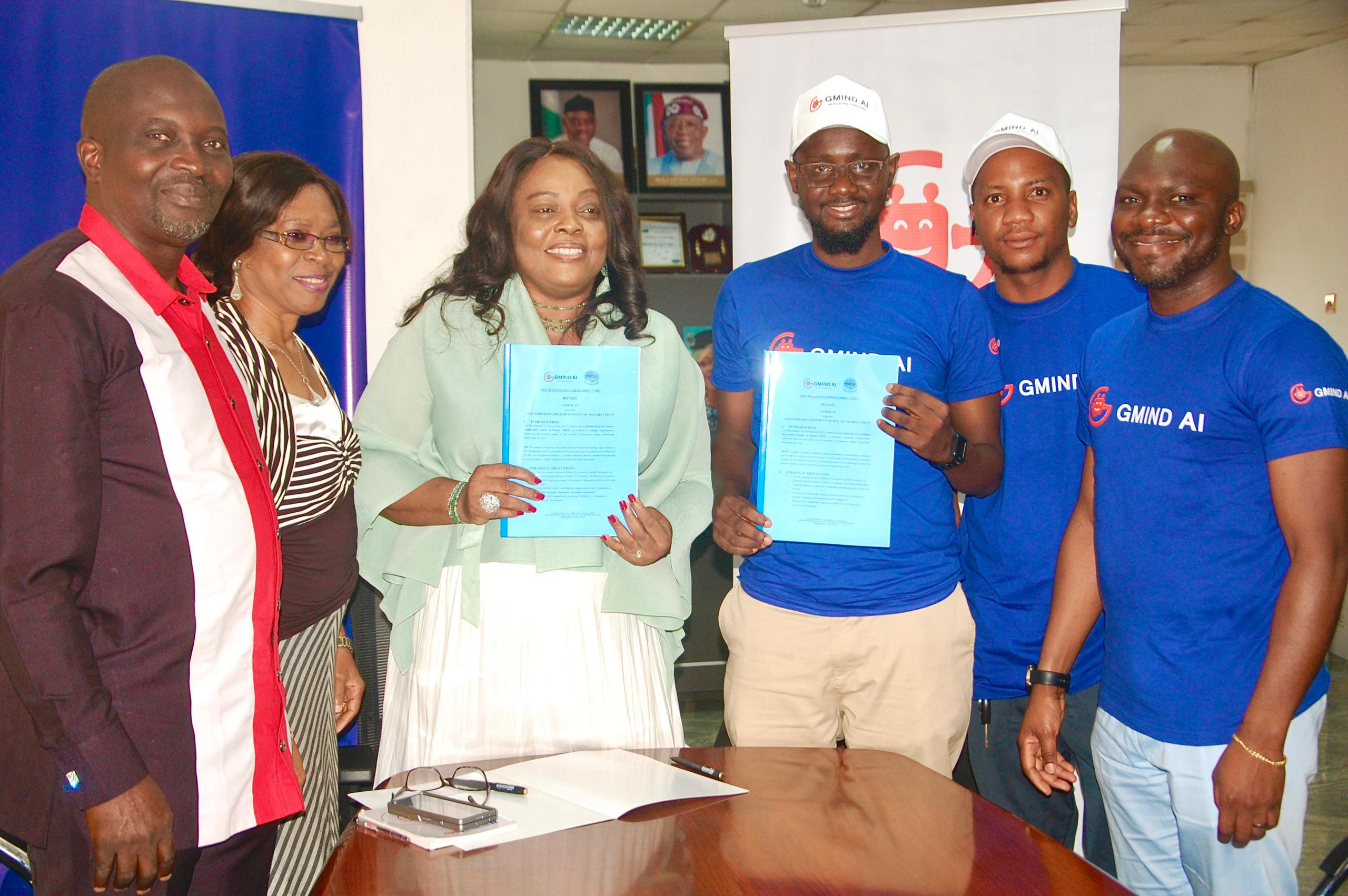
In a groundbreaking move set to redefine the Nigerian education landscape, GMind AI and the Teachers Registration Council of Nigeria (TRCN) have inked a historic Memorandum of Understanding (MOU). Signed on August 13, 2025, this collaboration is poised to transform the way teachers instruct and students learn by leveraging cutting-edge AI technology.
The partnership aims to equip 1.5 million TRCN-licensed teachers with an AI-powered teaching platform that promises to make classroom instruction more immersive, contextualized, and effective. By harnessing GMind AI’s advanced infrastructure, the platform will enable teachers to access AI-generated lesson plans, curriculum-aligned simulations, and culturally relevant content that reflects Nigeria’s rich heritage.
At the heart of this collaboration are four key pillars designed to drive meaningful impact. The initiative will provide inclusive access to AI tools, ensuring that teachers across the country can benefit from AI-generated lesson planning, assessments, and smart study guidance.
Also, a massive capacity-building program will be rolled out, training 2,500 master trainers who will, in turn, equip 500,000 teachers and final-year student-teachers with the necessary skills. In addition, the platform will offer contextualized content in multiple languages, available both online and offline to cater to the diverse needs of learners. Lastly, data-driven governance will be enabled through live analytics dashboards, allowing for real-time monitoring of teacher engagement and usage to inform policymaking.
The ripple effects of this partnership will be felt across the education ecosystem. Teachers will enjoy reduced preparation time, enriched lesson content, and a greater focus on learner needs. On the other hand, students will be treated to engaging, culturally relevant learning experiences tailored to their proficiency levels. For TRCN, this collaboration cements its position as a leader in EdTech innovation for teacher development, not just in Nigeria but across Africa. And for Nigeria, it represents a significant step toward becoming a regional hub for AI-integrated education.
By empowering teachers with cutting-edge AI tools, GMind AI is not only enhancing teaching quality but also redefining learning outcomes nationwide. This partnership is a testament to GMind AI’s commitment to harnessing technology to drive educational innovation. With pilot studies slated for Q4 2025 and a nationwide rollout to follow, the platform is expected to go live on October 6, 2025, accompanied by comprehensive video tutorial content. As GMind AI and TRCN embark on this ambitious journey, they are setting the stage for a future-ready education system that is inclusive, innovative, and poised to unlock the full potential of Nigerian learners.
Education
AUDA-NEPAD Unveils Transformative draft for African EdTech 2030 Vision
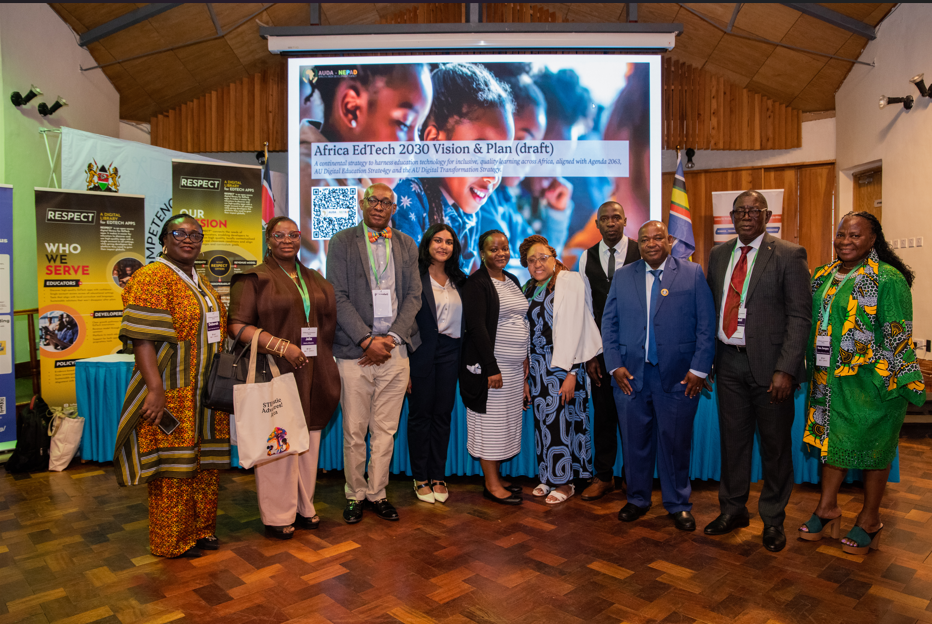
The African Union Development Agency-NEPAD (AUDA-NEPAD) today launched the draft African EdTech 2030: Vision, Plan and Policy framework for consultation and stakeholder input.
The ambitious new vision sets out an achievable roadmap to transform African education systems through technology whilst positioning the continent as the global leader in mobile-first, locally-relevant digital learning. The vision, mission and policy framework were unveiled during the STEMtastic Adventures! Africa symposium.
Aligned with Agenda 2063, STISA-2034, CESA 2026-2035, and the AU Digital Transformation Strategy, the vision, plan and policy framework envisage a Pan-African EdTech transformation grounded in continental leadership and local innovation.
“The draft vision, plan and policy framework aim to catalyse an accelerated transformation in education for the continent: leveraging local innovation and leadership in Edtech to make Africa’s education systems more inclusive, resilient and innovation-driven, as envisaged by Agenda 2063 and the AU Digital Education Strategy,” Said Dr. Barbara Glover, Program Officer, Integrated Vector Management Programme (IVM), AUDA-NEPAD.
Africa’s leapfrogging opportunity
The framework capitalises on Africa’s unique position to bypass traditional educational infrastructure constraints. Just as mobile money succeeded in Africa before other regions due to limited traditional banking infrastructure, digital education can surpass conventional classroom-based systems because the continent isn’t constrained by legacy educational infrastructure.
“Schools can harness offline and mobile-first technologies to reach marginalised learners,” noted framework developers, highlighting how solutions designed for intermittent connectivity and basic smartphones can be exported globally to serve similar conditions worldwide.
With smartphone ownership among teachers exceeding 90% in South Africa and ranging between 30-65% in Ghana, Nigeria, and Kenya, Africa possesses foundations for mobile-first educational interventions that other continents are still developing.
A comprehensive vision for 2030
The framework establishes an ambitious yet achievable vision: “Every African learner—regardless of gender, location, disability or background—has affordable access to high-quality, localised digital learning resources on reliable devices, within an inclusive ecosystem that fosters innovation and entrepreneurship.”
In practical terms, this means a student in rural Tanzania could access quality chemistry lessons in Kiswahili using easy to access offline capable devices, while teachers across the continent could share resources seamlessly.
African-developed educational apps could compete globally whilst serving local needs first. The harmonised environment enables a teacher in Kenya to use courseware developed in Nigeria, whilst student data remains nationally secure but contributes to continental learning insights.
Addressing critical educational challenges
The Vision & Plan responds to urgent continental challenges. With Africa’s youthful population—over 60% under age 25—projected to reach 2.5 billion by 2050, quality education becomes critical for sustained growth. However, significant barriers persist: an estimated 30 million primary-age children in Sub-Saharan Africa remain out of school, whilst Africa will need 17 million additional teachers by 2030 just to maintain universal access.
Only approximately 40% of African primary schools have internet access, and UNICEF reports that approximately 75% of African youth lack digital skills required by modern economies. COVID-19 exposed these gaps when most countries couldn’t pivot to remote learning.
“It is time for a Pan‑African EdTech transformation: one that turns connectivity and content investments into improved learning, inclusion, and economic opportunity for every learner,” emphasised John Kimotho, highlighting the urgency of coordinated continental action.
Strategic framework and implementation
The African EdTech 2030 Vision & Plan advances six strategic objectives:
Access and infrastructure: Expand digital access via low-cost devices, solar solutions, and offline-first technologies, building on the fact that smartphone ownership among teachers already exceeds 90% in South Africa and ranges between 30-65% in countries such as Ghana, Nigeria, and Kenya.
Courseware development: Promote locally made, curriculum-aligned, multilingual digital courseware, including successful examples such as Senegal’s Wolof-language XamXam platform serving 1.2 million users.
Teacher capacity: Upskill teachers in digital pedagogy, content curation, and data use with specific emphasis on fostering positive attitudes and building confidence in using technology for learning.
Interoperability and standards: Institutionalise vendor-neutral interoperability frameworks through AUDA-NEPAD’s standards-based vendor-neutral EdTech policy framework.
Policy and governance: Support data privacy, equitable funding, and regulatory harmonisation across the continent.
Data and research: Generate and use robust data and research to guide policy, monitor learning outcomes, and ensure continuous improvement.
Implementation occurs through three phases:
-
Foundation building (2024-2026) develops continental policy frameworks enabling cross-border content sharing and establishes technical standards.
-
System integration (2026-2028) scales interoperable Digital Public Infrastructure, enabling single sign-on access to multiple educational applications whilst deploying regionally developed courseware.
-
Consolidation and export (2029-2030) positions Africa as a global EdTech exporter whilst launching the Pan-African EdTech Innovation and Research Hub.
The Digital Public Infrastructure as a public good approach means teachers won’t juggle multiple passwords and platforms—instead accessing integrated educational tools through unified systems whilst maintaining local language and curriculum relevance.
Stakeholder mobilisation and sustainability
Clear roles for all stakeholders are encapsulated in the plan and framework, creating accountability where it is needed.
-
Governments lead policy formulation, funding, and alignment with national curricula.
-
Regional bodies coordinate standards, research, and shared platforms, whilst development partners provide catalytic funding and technical expertise.
-
The private sector develops infrastructure, devices, and platforms suited to African contexts.
-
NGOs and foundations pilot models, build capacity, and conduct impact assessments.
-
Communities advocate for EdTech and support student engagement.
Sustainability relies on blended finance models combining grants, equity, and subsidies, Digital Public Infrastructure investment promoting shared, scalable infrastructure, and partnerships with organisations such as GPE, UNICEF, and UNESCO to enable contextualised alignment with global priorities.
Call for continental collaboration
AUDA-NEPAD’s mission through this framework is to coordinate continental efforts by aligning policies and standards that enable open, vendor-neutral technologies; investing in digital infrastructure and platforms that scale affordably; strengthening educator and leadership capacity in digital pedagogy; encouraging local innovation through incubation, financing and partnerships; and using data-driven monitoring and governance to continually improve equity and outcomes.
The draft African EdTech 2030: Vision & Plan represents a potential turning point to harness technology for inclusive, relevant, and resilient education. All stakeholders—governments, educators, private sector actors, communities, and partners—are invited to review and comment on the vision and plan to ensure it enables the collective action envisaged.
“Through coordinated policy, local innovation, and equitable infrastructure, Africa can leapfrog legacy education barriers and build a globally competitive digital learning ecosystem,” concluded John Kimotho. “By learning from frontrunners like Kenya, Rwanda, and Mauritius and sharing lessons across borders, Africa can lead a new era in global EdTech.”
-
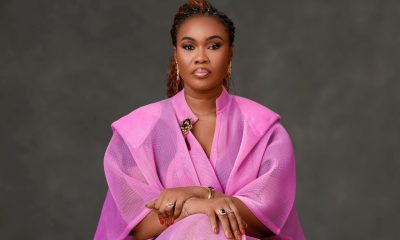
 Afripreneur1 day ago
Afripreneur1 day agoRevolutionizing Cross-Border Payments in Africa: An Exclusive Interview with Onyinye Olisah
-

 Op-Ed6 hours ago
Op-Ed6 hours agoThe Black Friday remix: What 2025 will look like after a rule-changing 2024
-
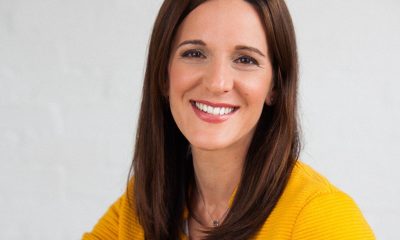
 Op-Ed4 hours ago
Op-Ed4 hours agoThe rise of the “shadow employee”: When ex-employees still have access
-

 Op-Ed13 mins ago
Op-Ed13 mins agoBreaking new ground with AI-enhanced code for the retail industry


